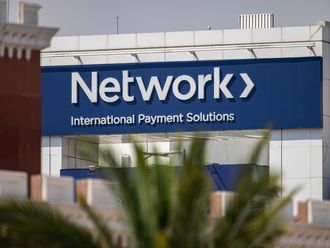
It is not easy for micro, small and medium enterprises (MSMEs) to secure funding because financial institutions often find lending to them costly, considering the high risk in operations. However, with proper planning and a good business plan, these firms can get a loan in the UAE, say bankers.
A recent report prepared by the United Nations Economic and Social Commission for Western Asia (ESCWA) shows that SMEs in this region have more difficulties to access finance than those in other parts of the world.
Turned down
Though more than half of SMEs in the region turn to banks and other lending institutions for funding, more than half of the applicants are denied a loan, according to a joint study prepared by Citi Foundation and Shell Foundation. Survey respondents indicated that bank loans are typically denied to the Missing Middle — medium businesses that have passed the initial start-up stage — because banks are unwilling to finance companies without long track records, sufficiently large collateral, and guarantors with enough capital to protect against default risk. Bankers say they are hesitant to fund SMEs because they often find it hard to ascertain if borrowers have the required capacity to repay their loans.
“Many SMEs keep their financials and projections in a non-transparent order. Any inconsistency in the financial statements results in banks turning down the loan applications,” says Hans Henrik Christensen, Director — Incubation Center, Technology Investment, Dubai Silicon Oasis Authority. “Bank managers are ‘number’ people. They are not trained to analyse businesses other than using financial statements and projections.”
Comprehensive documents
Banks typically look at the borrower’s business plan, the quality of its financial statements and the transparency of disclosures on operational risks. “The business plan should demonstrate the future outlook of the company, the profitability of the business and have the flexibility to adjust to changes in market conditions with realistic projected sales and cash flows,” says Douglas Stoneham, General Manager, SME Banking for UAE and Middle East, Standard Chartered Bank.
The day-to-day operations of a business and the management of its cash flows are the main considerations when providing loans to SMEs, says Rehan Ali, Head of Business Banking, National Bank of Fujairah (NBF), hence information providing clarity on a company’s financial health and its credit worthiness is helpful.
NBF also examines the governance standards that SMEs have in place. Ali says that while the bank does not hold them to the same benchmarks as large corporations, companies that enact the basic measures to ensure the stability and transparency of their businesses are viewed as stronger propositions.
Other factors that banks consider are whether they are transparent about the strengths of the business and potential operational risks. “Applicant companies should have quality-audited financial statements and they must also have risk mitigation plans for their companies,” suggests Stoneham.
Understanding the importance of SMEs in the UAE’s economy, a majority of local banks have now increased lending to SMEs and designed products to specially cater to this segment.
HSBC launched its fourth International Growth Fund in November last year worth Dh1 billion for international SMEs. Chaker Zeraiki, Head of Business Banking for HSBC UAE, says: “Over the years, we have been working closely with organisations such as the Dubai SME 100 and Chambers of Commerce to reach out to SMEs and provide training sessions, seminars and advice on finance for business. This is in addition to MoUs we have signed with five UAE free zones, providing another path for extending guidance and financial education to the SME segment.”










